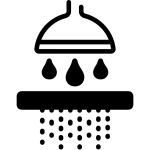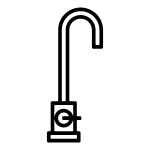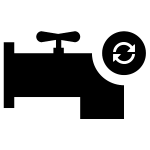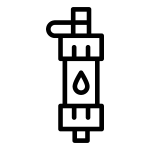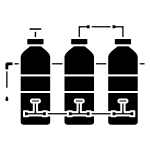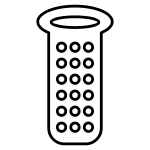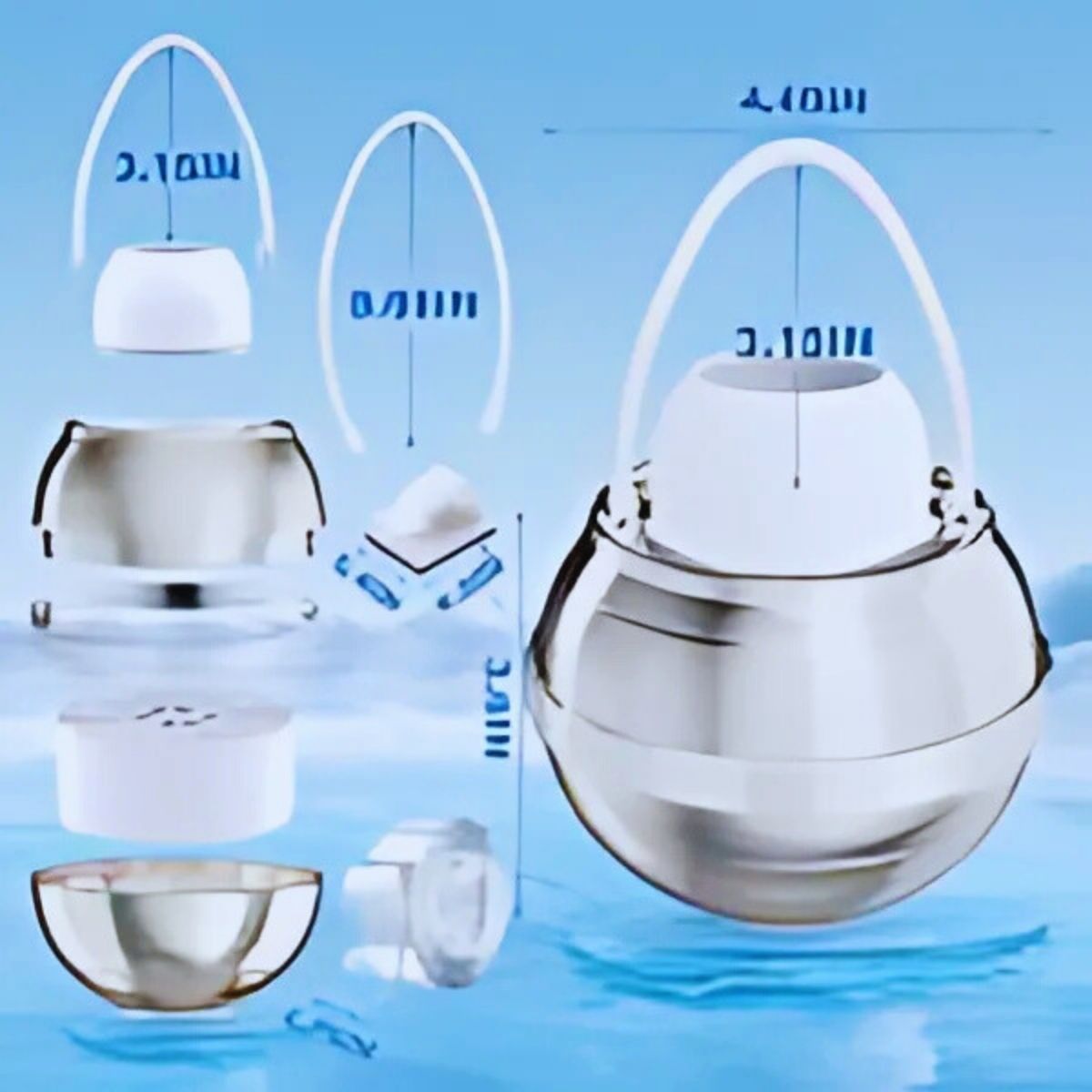When you’re investing in your home’s water quality, you’re likely to come across two common products: water softeners and water filters. These terms are often used interchangeably by consumers, but they serve very different purposes.
So the big question is — does a water softener filter water?
In this comprehensive guide, we’ll break down the key differences between water softeners and water filters, what each one does, and whether a water softener can truly filter your water. By the end of this post, you’ll know exactly what your home needs and how products from Cuoll can help.
Table of Contents
- What is a Water Softener?
- What is a Water Filter?
- Does a Water Softener Filter Water?
- Why Water Softeners and Filters are Often Confused
- What Happens If You Only Use a Water Softener?
- Do You Need Both a Water Filter and Softener?
- Water Quality Concerns: Hard Water vs Contaminated Water
- Signs You Need a Water Softener
- Signs You Need a Water Filter
- Cuoll’s Top Solutions for Clean, Healthy Water
- FAQ Section
- Final Thoughts
1. What is a Water Softener?
A water softener is a device that removes hardness-causing minerals, specifically calcium and magnesium, from your water. These minerals are naturally found in groundwater, and while they’re not harmful to health, they can damage plumbing, appliances, and even your skin and hair over time.
How Do Water Softeners Work?
Water softeners use a process called ion exchange. Here’s how it works:
- Hard water passes through a tank filled with resin beads.
- These beads are coated with sodium or potassium ions.
- The calcium and magnesium ions swap places with the sodium or potassium.
- The result: soft water free of scale-forming minerals.
While water softeners are great for preventing scale buildup and extending appliance life, they don’t remove contaminants like bacteria, chlorine, lead, or sediment.
2. What is a Water Filter?
A water filter is a device designed to remove unwanted impurities from water. These impurities can include:
- Sediment
- Chlorine
- Lead
- Pesticides
- Bacteria
- Viruses
- Heavy metals
There are many types of water filters:
- Activated carbon filters
- Reverse osmosis systems
- Ultraviolet (UV) purifiers
- Sediment filters
- Whole-house filtration systems
Water filters focus on improving the safety and taste of your water by removing contaminants — something water softeners do not do.
3. Does a Water Softener Filter Water?
Let’s get to the point.
No, a water softener does not filter water in the traditional sense.
It removes minerals, not contaminants. While it can improve the feel and performance of water, it doesn’t purify or sanitize it.
If your goal is to eliminate chlorine, bacteria, or chemical pollutants, you need a water filter in addition to your water softener.
4. Why Water Softeners and Filters are Often Confused
The confusion arises because both devices improve water quality, but in different ways.
| Feature | Water Softener | Water Filter |
|---|---|---|
| Removes Hardness | ✅ Yes | ❌ No |
| Removes Contaminants | ❌ No | ✅ Yes |
| Improves Taste | ⚠️ Slightly (in some cases) | ✅ Yes |
| Protects Appliances | ✅ Yes | ✅ Yes (from sediment, chlorine) |
| Reduces Chlorine | ❌ No | ✅ Yes |
Understanding the differences will help you choose the right system for your needs.
5. What Happens If You Only Use a Water Softener?
If you live in an area with hard water but low contamination, a water softener may be enough. But if your water source contains chlorine, lead, pesticides, or biological contaminants, you’re still at risk even with a softener installed.
Potential Issues:
- Unpleasant taste or smell
- Exposure to harmful substances
- Reduced water clarity
- Health risks for infants or immune-compromised individuals
6. Do You Need Both a Water Filter and Softener?
In many cases, yes. Especially if you rely on municipal water or well water, using both systems ensures:
- Protection against hardness damage
- Removal of harmful contaminants
- Improved water taste and smell
- Better skin and hair health
- Safe drinking and cooking water
At Cuoll, we often recommend combo systems or installing a whole-house filter with a softener.
7. Water Quality Concerns: Hard Water vs Contaminated Water
Hard Water:
- Leaves white spots on dishes and glassware
- Clogs pipes and damages appliances
- Causes dry skin and dull hair
- Reduces soap efficiency
Contaminated Water:
- May taste or smell bad
- Can cause stomach issues or illness
- Carries heavy metals or pathogens
- May stain clothing or plumbing fixtures
Understanding your water type is key. You can start with a home water testing kit or get a professional analysis.
8. Signs You Need a Water Softener
- White or chalky buildup on faucets and showerheads
- Stiff laundry and faded clothes
- Frequent appliance repairs (especially water heaters, dishwashers)
- Dry, itchy skin or dull hair after showering
- Soap scum in sinks or bathtubs
9. Signs You Need a Water Filter
- Strong chlorine smell or taste
- Cloudy or discolored water
- Strange taste (metallic or chemical)
- Presence of sediment in drinking water
- Known local water quality issues (e.g., lead, pesticides)
10. Cuoll’s Top Solutions for Clean, Healthy Water
At Cuoll, we offer a wide range of premium home water solutions designed to keep your water clean, soft, and safe.
✅ Bestselling Water Softener
- Efficient ion exchange system
- Salt-based with high capacity resin
- Long lifespan with easy regeneration
- Perfect for households with hard water issues
✅ Whole-House Water Filtration System
- Removes chlorine, sediment, and contaminants
- Activated carbon filter and pre-sediment stage
- Ideal for city and well water alike
- Improves taste, smell, and water quality
✅ Reverse Osmosis Drinking Water Purifier
- 5-stage or 7-stage options
- Removes up to 99% of contaminants
- Great for drinking and cooking water
- Easy under-sink installation
✅ Water Softener & Filter Combo
- All-in-one solution
- Save space, time, and money
- Enjoy clean and soft water throughout the house
- Available in multiple capacities
Browse all options on Cuoll’s product page and find the perfect match for your home.
11. FAQ Section
Q1: Can I drink softened water?
Yes, but it depends on your health condition and the sodium content. If you’re on a low-sodium diet, consider a bypass tap or install a reverse osmosis filter for drinking water.
Q2: What’s better — filter first or soften first?
Typically, sediment filters come first, followed by a water softener, and then an RO or UV purifier. This order prevents clogging and maximizes efficiency.
Q3: How often should I maintain my softener and filter?
- Water softeners: Check salt levels monthly and clean resin tank every 6–12 months.
- Filters: Replace filter cartridges every 3–6 months depending on usage and type.
Q4: Can I install these systems myself?
Some systems are DIY-friendly, but others may require a plumber or professional installer. At Cuoll, we provide guidance for both DIY and professional setups.
12. Final Thoughts
So, to circle back — does a water softener filter water?
The short answer is: No, it doesn’t. A water softener removes hardness-causing minerals but doesn’t filter out contaminants like chlorine, lead, or bacteria.
If you’re serious about safe, clean, and healthy water, it’s wise to invest in both a water filter and a softener.
At Cuoll, we’re here to help you make the right choice. Whether you’re dealing with hard water, contaminants, or both, we’ve got affordable, reliable solutions tailored to your needs.
🔗 Ready to upgrade your home’s water quality?
Check out our best-selling water softeners, purifiers, and whole-house systems at Cuoll today!


